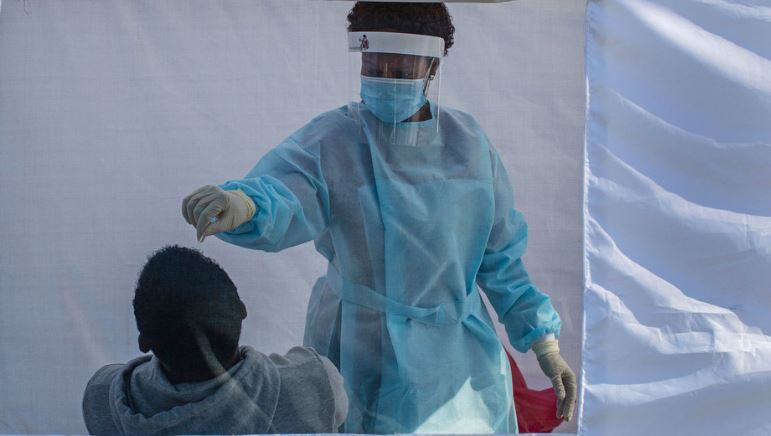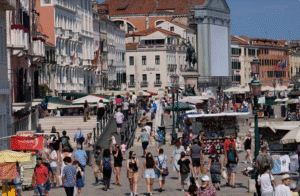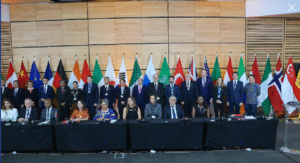WHO warns increased risk of new COVID Omicron , 46 destinations completely closed to tourists

The World Health Organization has named its fifth “variant of concern” for the virus behind COVID-19. B.1.1.529, first reported to the WHO from South Africa this week, has been given the designation “omicron” under a system based on the Greek alphabet.
The U.S. will restrict travel from South Africa, Botswana, Zimbabwe, Namibia, Lesotho, Eswatini, Mozambique and Malawi, starting next week, in light of the omicron variant.
Travel Biz News —
One out of five destinations continue to have their borders completely closed as new surges of COVID-19 impact the restart of international tourism. The latest research shows that still 98% of all destinations have some kind of travel restrictions in place.
According to the UNWTO Travel Restrictions Report, 46 destinations (21% of all destinations worldwide) currently have their borders completely closed to tourists.
Of these, 26 destinations have had their borders completely closed since at least the end of April 2020. A further 55 global destinations continue to have their borders partially closed to international tourism, and 112 destinations require international tourists to present a PCR or antigen test upon arrival.
The trend towards destinations taking evidence-based approaches to restrictions reflects the evolving nature of the pandemic will also help restore confidence in travel while helping keep both tourists and tourism workers safe.
The research also shows how destinations are opening up to vaccinated international tourists: 85 destinations (39% of all destinations worldwide) have eased restrictions for fully vaccinated international tourists, while 20 destinations (9% of all destinations worldwide) have made a full COVID-19 vaccination mandatory for entering a destination for tourism purposes.
However, just four destinations have so far lifted all COVID-19-related restrictions completely (Colombia, Costa Rica, Dominican Republic and Mexico).
Asia and the Pacific remains the region with the most restrictions in place, with 65% of all destinations completely closed. In comparison, Europe is the most open global region to international tourists (7% of borders completely closed), followed by Africa (9%), the Americas (10%) and the Middle East (15%).
The ongoing challenges posed by the pandemic further emphasises the importance of national authorities ensuring that immigration procedures and requirements are provided in a timely, reliable and consistent manner across all information systems and platforms, to maintain confidence and trust and to further facilitate international mobility , UNWTO said.
Latest COVID-19 variant identified in South Africa ‘Omicron’
Meanwhile , the latest COVID-19 variant identified in South Africa has been given the Greek name ‘Omicron’, and labeled as a variant of concern by WHO experts due to its large number of mutations and possible faster rate of infection.
According to the UN World Health Organization (WHO), preliminary evidence also suggests an increased risk of reinfection with this variant of concern, as compared to other strains, such as Delta.
WHO explains that the variant has been detected at faster rates than in previous surges in infection.
The experts have asked countries to enhance surveillance and genome sequencing efforts to better understand the variant.
WHO urged all countries to adopt a risk-based and scientific approach to travel bans linked to the new variant identified in South Africa and Botswana.
Britain, France and Israel have moved to cancel direct flights from South Africa and surrounding nations.
The U.S. will restrict travel from South Africa, Botswana, Zimbabwe, Namibia, Lesotho, Eswatini, Mozambique and Malawi, starting next week, in light of the omicron variant.
Nov. 26 , 2021
Image : A COVID-19 government testing drive in Johannesburg, South Africa. (file)IMF Photo/James Oatway














